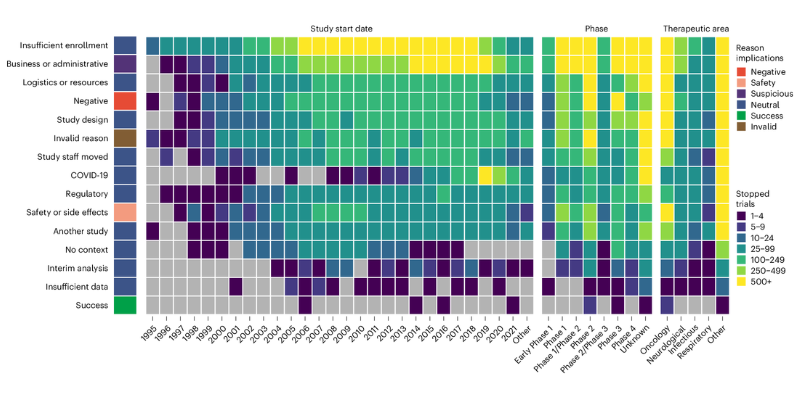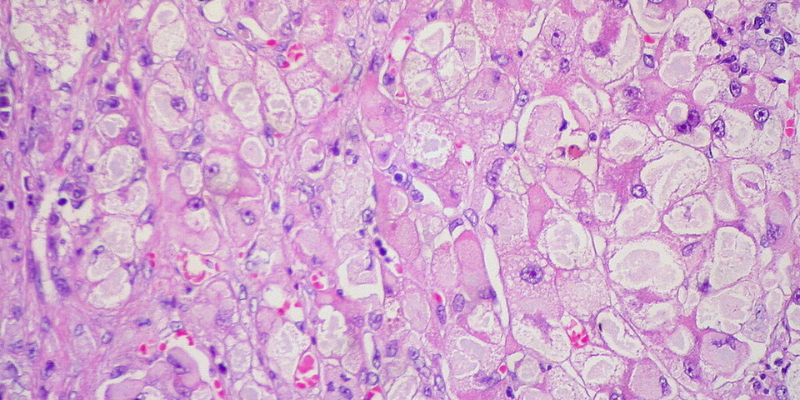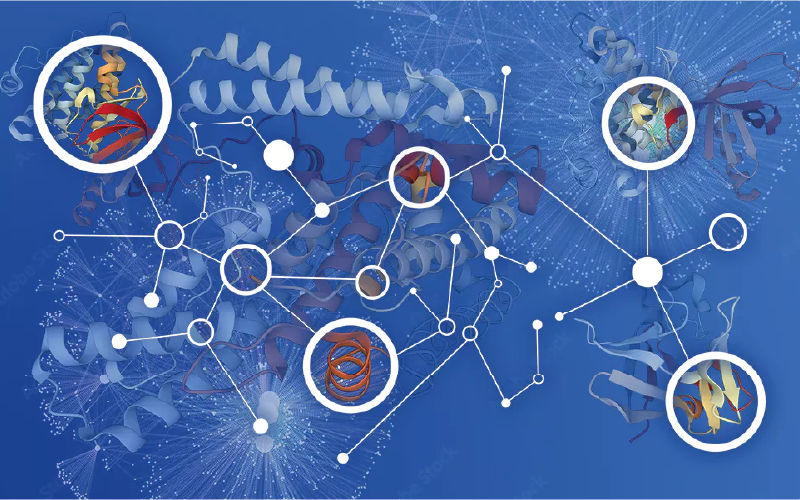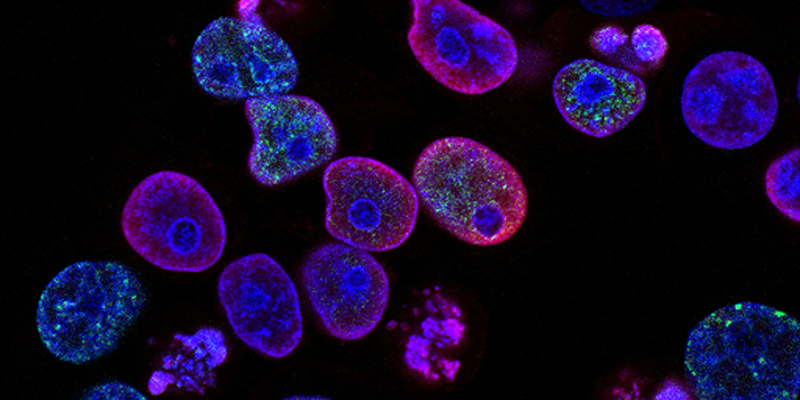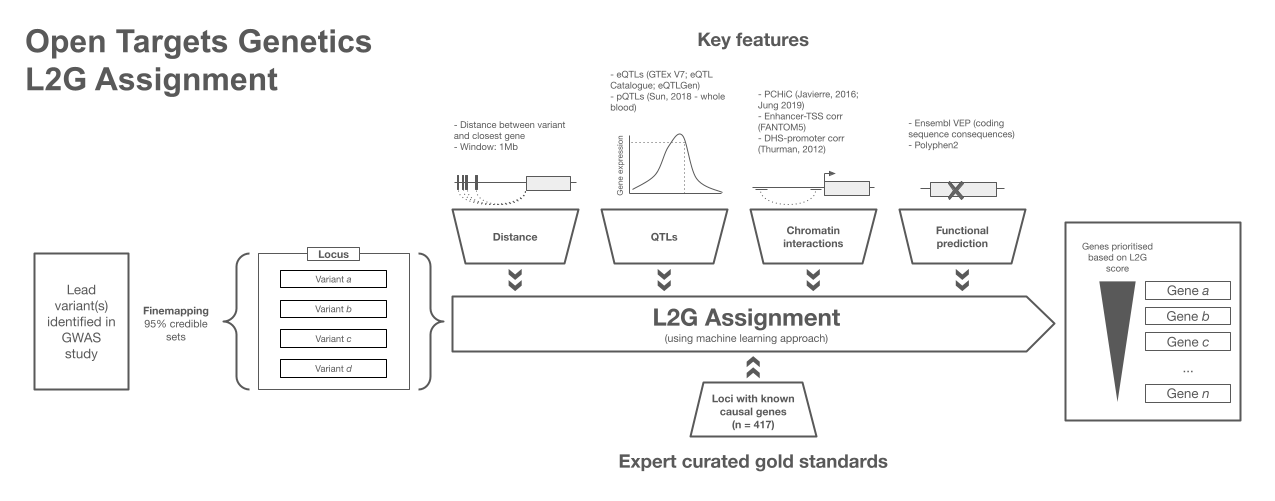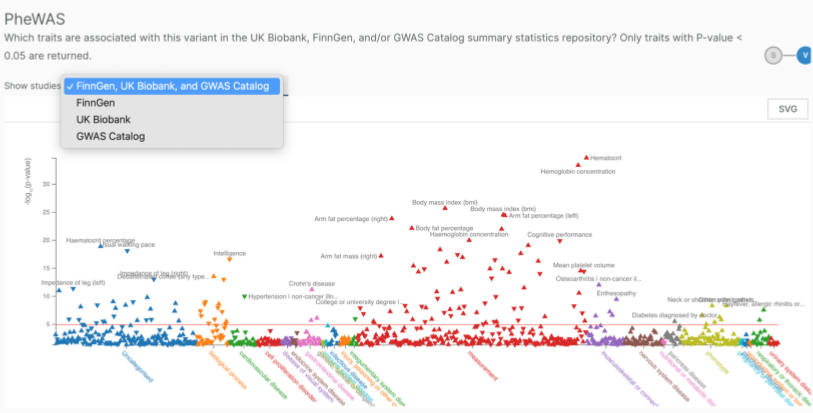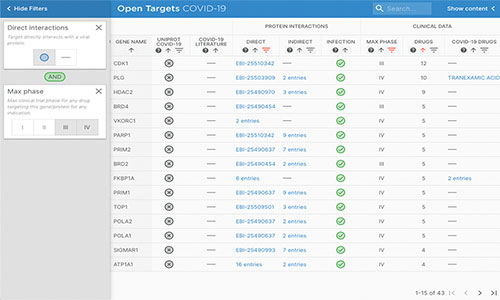Immunotherapy success could be predicted with new biomarkers
20 January 2026
The deletion of two cancer genes, CHD1 and MAP3K7, improves how well tumours respond to cancer immunotherapy and could be used as biomarkers to help predict which patients are most likely to benefit from treatment, new research shows.
Researchers at the Wellcome Sanger Institute, Open Targets, Netherlands Cancer Institute and their collaborators used a powerful gene-editing tool called CRISPR in a novel approach that cultured tumour cells together with immune cells from the same in...
New data initiative accelerates discovery and personalised care for mental health conditions
25 November 2025
EMBL-EBI receives UKRI Medical Research Council (MRC) and National Institute for Health and Care Research (NIHR) funding for enhancing and translating mental-health omics data into the Open Targets Platform.
Cancer drug resistance causes and categories identified
18 October 2024
Researchers have mapped the genetic landscape of cancer drug resistance, uncovering that DNA changes can be grouped into four main categories and highlighting possible new therapeutic targets.
All cancer mutations that cause drug resistance fall into one of four categories. New research has detailed each type, helping to uncover targets for drug development and identify potential effective second-line therapies.
In a new large-scale study, re...
Why clinical trials stop: the role of genetics
29 July 2024
Using machine learning to analyse the genetic factors behind early clinical trial termination, researchers find a link between genetic evidence and trial outcome.
Failure is the most likely outcome of a clinical trial. Learning from these failures by understanding which factors maximise the chances of a successful trial would help improve the drug discovery process. However, accessing information about failed clinical trials is difficult since the dr...
Researchers decipher mechanisms of liver regeneration
23 May 2024
Scientists from the Berlin Institute of Health at Charité (BIH) and Open Targets together with colleagues from the University of Cambridge, and Addenbrooke’s Hospital in Cambridge, UK, uncovered mechanisms driving regeneration of the liver during chronic liver disease. This regenerative process allows the liver to repair itself when chronically injured but could also result in progression toward cancer. The researchers were able to demonstrate this first by performing single-cell a...
Ambitious inflammatory bowel disease study aims to uncover disease biomarkers for personalised medicine
17 May 2024
A unique study into IBD will bring together genomics and immunology experts, gastroenterologists, and patients from across the UK to identify new and personalised ways to predict, monitor, and treat Crohn’s disease and ulcerative colitis.
A new one-of-a-kind study into inflammatory bowel disease (IBD) is bringing together research institutions, hospitals, pharmaceutical partners, and patients to uncover what drives IBD onset and severity, identifying biomarkers to ...
MSD joins the Open Targets consortium
30 April 2024
Open Targets, a public-private partnership dedicated to pre-competitive drug discovery research, today announced MSD, the tradename of Merck & Co., Inc., Rahway, N.J., USA, as the latest partner to join the consortium. Open Targets aims to accelerate the development of safe and effective medicines by leveraging cutting-edge technologies to identify, prioritise, and validate potential drug targets. MSD’s expertise in drug discovery will complement the strengths of the current partners: ...
New screening tool to explore mechanisms behind cancer, autoimmunity and neurodegeneration
27 February 2024
Mechanisms driving diseases such as cancer, autoimmunity, Alzheimer’s and Parkinson’s could be uncovered using a new integrated single-cell approach to cellular genetic screening.
Cancer drug discovery accelerated as hundreds of overlooked targets prioritised
11 January 2024
The second generation of the Cancer Dependency Map uncovers 370 priority drug targets, with strong links to specific cancer types.
A new, systematic analysis of cancer cells identifies 370 candidate priority drug targets across 27 cancer types, including breast, lung and ovarian cancers.
By looking at multiple layers of functional and genomic information, researchers were able to create an unbiased, panoramic view of what enables cancer cells to grow and survive. The...
David Hulcoop appointed Open Targets Director
5 July 2023
July 5, Cambridge — Open Targets has appointed David Hulcoop as its new Executive Director, following the retirement of Ian Dunham. Hulcoop will build from the programme’s existing capabilities to maximise Open Targets impact on drug discovery decision making.
Open Targets, a public-private partnership founded in 2014, aims to use the information generated by genome sequencing and genetics studies to systematically improve the identification and prioritisation of drug target...
Open Targets project creates a human interactome to prioritise drug discovery
23 February 2023
Scientists at Open Targets, EMBL’s European Bioinformatics Institute (EMBL-EBI), and GSK are revealing the shared basis of diseases using a map of interacting human proteins. By helping to understand how biological processes affect human traits and diseases, this work will prioritise new targets for drug discovery and identify drug repurposing opportunities.
Proteins are molecules that do most of the work in our cells and are made following blueprints encoded in genes. They are ess...
Bowel cancer mutations that impact immunotherapy identified
19 January 2023
Researchers used CRISPR and mini tumours to discover more about how cancer develops and responds to the body’s immune response.
A new library documenting hundreds of mutations can help to explain why some cancers don’t respond to immunotherapies, and highlights potential pathways that could be drug targets in the future.
The researchers, from the Wellcome Sanger Institute, Open Targets, and collaborators, used CRISPR gene editing technology and mini tumours...
Open Targets consortium welcomes Genentech as newest member
14 November 2022
Open Targets announced today that Genentech, a member of the Roche Group, has joined the consortium, which identifies, prioritises, and validates drug targets to accelerate the development of safe and effective medicines. The second company to join the industry-academic partnership this year, Genentech will collaborate with other consortium members including EMBL’s European Bioinformatics Institute (EMBL-EBI), the Wellcome Sanger Institute, GSK, Bristol Myers Squibb, Sanofi, and Pfizer.
Study tracking T-cell activation over time boosts search for immune disease treatments
26 May 2022
In a first-of-its-kind experiment, researchers have identified links between 127 genes and immune diseases, providing newfound insights into the sequence and timing of gene activity during the activation of T cells, a key process in regulating the body’s immune response.
The study, led by researchers from Open Targets, the Wellcome Sanger Institute and GSK, is published today (26 May 2022) in Nature Genetics. The result of a 3 year research effort, it is the first to show that nume...
Pfizer joins the Open Targets consortium
14 February 2022
Open Targets, a consortium focused on drug target identification, prioritisation, and validation, announced today that Pfizer has joined as a partner. Pfizer will contribute its unique expertise in oncology, immunology, and metabolic disorders as part of the innovative public-private partnership which uses human genetics and genomics data with the aim of improving the success rate for developing new medicines. This complements the strengths of the five current partners: EMBL’s European Bio...
Locus-to-Gene method published in Nature Genetics
28 October 2021
Our locus-to-gene (L2G) machine learning scoring method was published in Nature Genetics (the preprint is also available). The L2G score reflects the likelihood that a gene is causal for the trait in question, allowing genes at trait-associated loci to be ranked by the relative strength of their evidence. It has been included in the Genetics portal since version 4.
Open Targets releases new version of the Genetics Portal with FinnGen data
30 June 2021
In our latest Genetics Portal release, we have integrated over 2,700 study endpoints from FinnGen, a public-private collaboration to identify genotype-phenotype correlations in the Finnish population. We have also integrated over 11,800 new studies from GWAS Catalog.
Open Targets releases a COVID-19 Target Prioritisation Tool
29 July 2020
Open Targets is excited to announce the release of our COVID-19 Target Prioritisation Tool, an interactive, open source web portal that integrates a number of key public datasets and publications to facilitate systematic exploration of host and viral targets as well as potential treatments for COVID-19.

Gosia Trynka awarded 2020 Leena Peltonen Prize
6 June 2020
Open Targets is excited to announce that Gosia Trynka, our Experimental Science Director, has been awarded the 2020 Leena Peltonen prize by the European Society for Human Genetics (ESHG).
The prize is given every two years to an outstanding young researcher in the field of human genetics and it honours the memory of Dr. ...



